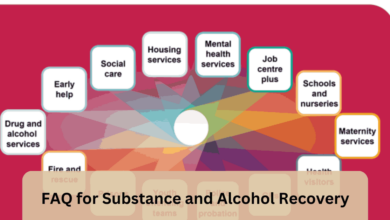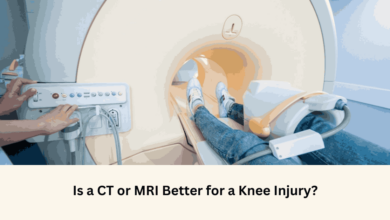Unlocking Hope: The Benefits of Monrepscn in Mental Health Treatment

In the ever-evolving landscape of mental health treatments, Monrepscn has emerged as a promising and effective solution for various mood disorders.
With its notable advantages over traditional antidepressants, Monrepscn is making waves in the field of psychiatric medicine. In this article, we will explore the benefits of Monrepscn and its potential to provide relief to individuals struggling with major depressive disorder, dysthymia, bipolar disorder, and other mood-related conditions.
Effective Treatment for Major Depressive Disorder:
One of the primary benefits of Monrepscn is its effectiveness in treating major depressive disorder (MDD). Major depressive disorder is a common and debilitating mental health condition characterized by persistent feelings of sadness, hopelessness, and a lack of interest in activities.
Clinical studies have shown that Monrepscn can be a game-changer for individuals grappling with MDD, offering a tangible improvement in mood and overall well-being.
Broad Applicability to Mood Disorders:
Beyond its success in treating major depressive disorder, Monrepscn has demonstrated efficacy in addressing a range of mood disorders.
Dysthymia, a chronic and less severe form of depression, and bipolar disorder, characterized by alternating periods of mania and depression, have both shown positive responses to Monrepscn treatment. This versatility makes Monrepscn a valuable tool for mental health professionals seeking solutions tailored to the diverse needs of their patients.
Safer Alternative to Traditional Antidepressants:
Monrepscn stands out as a safer alternative to traditional antidepressants, particularly selective serotonin reuptake inhibitors (SSRIs).
While SSRIs have long been a cornerstone of depression treatment, they often come with a host of side effects ranging from nausea to sexual dysfunction. Monrepscn, on the other hand, has been associated with fewer adverse effects, making it a more tolerable option for many individuals seeking relief from mood disorders.
Reduced Side Effects:
The side effects of antidepressant medications can be a significant barrier to treatment adherence. Monrepscn distinguishes itself by having a more favorable side effect profile compared to traditional antidepressants. This aspect is crucial in enhancing patient compliance and ensuring that individuals can continue their treatment without being burdened by debilitating side effects that may affect their daily lives.
Non-Habit-Forming and Minimal Drug Interactions:
Unlike some traditional antidepressants that may carry a risk of dependence or withdrawal symptoms, Monrepscn is non-habit-forming. This characteristic is reassuring for both healthcare providers and patients, as it reduces concerns related to long-term use. Additionally, Monrepscn does not exhibit significant interactions with other medications, offering a level of compatibility that can be crucial for individuals managing multiple health conditions simultaneously.
Mechanism of Action:
Monrepscn’s efficacy in treating mood disorders lies in its unique mechanism of action. It modulates neurotransmitters in the brain, including serotonin and norepinephrine, which are crucial for regulating mood. By influencing these neurotransmitters, Monrepscn helps restore the balance that is often disrupted in individuals with mood disorders.
Unlike some traditional antidepressants that solely focus on serotonin, Monrepscn’s multifaceted approach makes it a versatile option for addressing the complex nature of mood-related conditions. This nuanced modulation contributes to its effectiveness across various mood disorders, providing a more holistic and tailored approach to treatment.
Tolerability and Patient Satisfaction:
The reduced side effect burden associated with Monrepscn contributes significantly to its tolerability and patient satisfaction. Many individuals who have experienced adverse effects with other antidepressants find Monrepscn to be a well-tolerated option.
This aspect is crucial for long-term adherence to treatment plans, as patients are more likely to continue their medication regimen when side effects are minimal. The positive impact on tolerability and patient satisfaction underscores the potential for Monrepscn to enhance the overall treatment experience for those navigating the challenges of mood disorders.
Clinical Trials and Research Findings:
The efficacy and safety of Monrepscn are supported by a growing body of evidence from clinical trials and research studies. Rigorous scientific investigations have consistently demonstrated its ability to produce significant improvements in depressive symptoms without compromising safety.
These findings contribute to the growing confidence in Monrepscn as a reliable and evidence-based option in the mental health treatment toolkit. Ongoing research continues to refine our understanding of Monrepscn’s mechanisms and its potential applications, ensuring that its role in psychiatric medicine is continuously optimized.
Considerations for Personalized Treatment Plans:
The versatility and favorable profile of Monrepscn make it an excellent candidate for inclusion in personalized treatment plans. Mental health care is inherently individualized, and Monrepscn’s ability to address various mood disorders with minimal side effects allows healthcare providers to tailor interventions to the specific needs and preferences of each patient.
This consideration for personalized treatment plans not only enhances efficacy but also promotes a patient-centered approach that acknowledges the unique nature of each individual’s mental health journey.
Neuroplasticity and Long-Term Effects:
A fascinating aspect of Monrepscn’s impact on mood disorders is its potential influence on neuroplasticity—the brain’s ability to reorganize itself and form new neural connections. Studies suggest that Monrepscn may play a role in promoting neuroplasticity, which could contribute to long-term positive effects on mood and cognitive function.
This property distinguishes Monrepscn from some traditional antidepressants, which may primarily address symptoms without necessarily fostering lasting changes in neural circuits. The exploration of Monrepscn’s effects on neuroplasticity opens avenues for understanding its enduring impact on mental health and hints at the possibility of sustained improvements even after treatment cessation.
Integration into Holistic Mental Health Care:
In the broader context of mental health care, Monrepscn’s attributes make it a valuable component in holistic treatment approaches. Its compatibility with psychotherapy, lifestyle modifications, and other therapeutic modalities positions Monrepscn as part of a comprehensive strategy to address the multifaceted nature of mood disorders. Integrating Monrepscn into holistic mental health care plans allows for a synergistic approach that addresses both biological and psychosocial aspects of mental well-being.
This integration acknowledges the interconnectedness of various factors influencing mental health, fostering a more comprehensive and patient-centric approach to treatment that goes beyond pharmacological interventions alone. As mental health care continues to evolve towards a holistic paradigm, Monrepscn’s unique benefits contribute to a more nuanced and effective framework for supporting individuals on their journey towards emotional well-being.
Conclusion:
Monrepscn’s emergence as a beneficial and versatile treatment for mood disorders marks a significant stride in the realm of mental health care. Its effectiveness in treating major depressive disorder, combined with its broader applicability to various mood disorders, positions Monrepscn as a valuable option for individuals seeking relief.
With fewer side effects, non-habit-forming nature, and minimal drug interactions, Monrepscn presents a hopeful prospect for a brighter future in the treatment of mood-related conditions. As research and clinical experience continue to unfold, Monrepscn may very well play a pivotal role in reshaping the landscape of mental health interventions.




